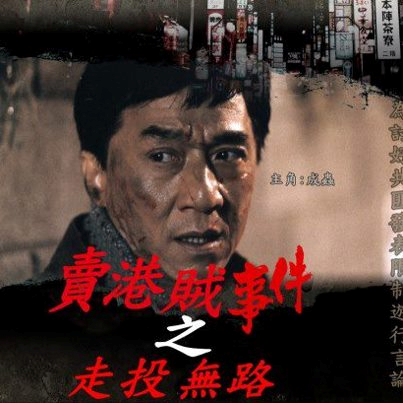
December 13, 2012
Associated Press in Hong Kong
Jackie Chan has called for regulations on what can be protested against in Hong Kong and suggested there should be limits on the right to protest in the Hong Kong.
The action star lamented that Hong Kong, a former British colony which was annexed by China in 1997, had become a city of protests, where people "scold China, scold the leaders, scold anything, protest against anything".

"There should be regulations on what can and cannot be protested," Chan told the Southern People Weekly. He did not say what kinds of protests he thought should be restricted.
The star of movies such as Rush Hour and Rumble in the Bronx triggered a backlash three years ago with similar comments on the need to restrict freedom in his hometown.
A former British colony, Hong Kong was annexed by China in 1997 and is now a "special administrative region" of China. Hong Kong people are fiercely proud of the western-style civil liberties they enjoy that are not seen in China, including the freedom to demonstrate.
The city-state has been the scene lately of a rising number of protests by people upset with their Beijing-backed leader, Leung Chun-ying, a lack of full democracy and worries about Beijing's growing influence on the city-state.
Tens of thousands of people in the city-state took to the streets in July to protest after Leung took office.
In 2009, Chan sparked outrage among Hong Kong politicians when said he said: "I'm not sure if it's good to have freedom or not." He also said he was "beginning to feel that we Chinese need to be controlled".
A representative for Chan did not respond to a request for comment.
Southern People Weekly is part of a media group controlled by southern Guangdong province's Communist party and known for its lively reporting.
AFP December 14, 2012
Action hero Jackie Chan provoked a furious fight-back from Hong Kongers Thursday after reportedly suggesting in a China¡¦ magazine interview that protest in his native city-state should be restricted.
The comments from the Hong Kong-born star unleashed a wave of criticism in Hong Kong, which prides itself on the upholding of civil liberties including the right to protest.
"Hong Kong has become a city of protest. The whole world used to say it was South Korea. It is now Hong Kong," the South China Morning Post quoted Chan as saying in an interview with China¡¦s Guangzhou-based Southern People Weekly magazine published Tuesday.
"People scold China's leaders, or anything else they like, and protest against everything. The authorities should stipulate what issues people can protest over and on what issues it is not allowed."
The Rush Hour star, known for his martial arts skills and daring stunt work, faced a counter-attack from Hong Kong politicians and academics, who said he was ignorant of the value of freedom cherished by Hong Kong people.
The former British colony, which was annexed by China in 1997, maintains a semi-autonomous status with its own legal system and civil liberties not seen in China, including the right to protest and free speech.
"This is disastrous," pro-democracy lawmaker Cyd Ho told AFP, branding the remarks "unacceptable" and noting that Chan had built his success in the movie industry where freedom of expression was essential.
"He made his fame and wealth because Hong Kong is a free country in which he had the opportunity to climb up the social ladder. These opportunities should be available to all," Ho said.
Political analyst Dixon Sing Ming from the University of Science and Technology told the Post the comments showed Chan was "almost detached from the daily lives of the people of Hong Kong".
Calls by AFP to Chan's charitable foundation went unanswered Thursday.
Chan was slammed in 2009 after he told a government and business leaders meeting in China that Chinese people "need to be controlled" and the country should be wary of allowing too many freedoms.
He reportedly said later that his comment was taken out of context.